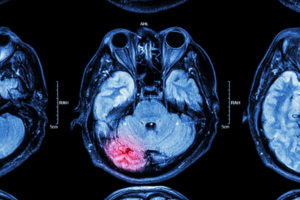Suffering brain trauma can be a devastating experience. A Norfolk personal injury lawyer can help you pursue damages.
Brain damage can affect both the body and the mind, sometimes for life. The road to recovery is often filled with medical bills, therapy sessions, and emotional turmoil.
Since 2011, The Pendleton Law Team has served thousands of clients like you. If you’ve experienced brain trauma as a result of someone else’s negligence, a Norfolk brain injury lawyer from our team can help you pursue compensation.
How Can a Brain Injury Lawyer in Norfolk Help Me?
A lawyer can provide invaluable support and expertise during this challenging time. Here’s what they can do:
- Evaluate your case: A lawyer can review the details of the incident to determine if you have a strong legal claim.
- Gather evidence: A lawyer can collect and organize critical evidence, including medical records, accident reports, and witness statements, to build a compelling case.
- Work with experts: A lawyer can collaborate with medical and financial experts to quantify the full extent of your trauma and future healthcare needs.
- Handle insurance companies: A lawyer can negotiate with insurance providers to ensure you receive a fair settlement and protect you from lowball offers.
- Represent you in court: If a fair settlement cannot be reached, a lawyer can advocate for you in court to fight for the compensation you deserve.
- Secure compensation: A lawyer can help you pursue damages for medical expenses, lost wages, pain and suffering, and long-term care needs.
- Provide legal guidance: A lawyer can offer personalized advice at every stage of the legal process, ensuring you understand your rights and options.
A skilled and compassionate brain injury lawyer in Norfolk can empower you to seek justice and rebuild your life.
For a Free Legal Consultation
Call The Personal Injury Lawyer Hotline.
804-250-5050
What Types of Compensation Can You Receive in a Brain Injury Case?
When pursuing a brain injury case, you may be eligible for various forms of compensation designed to address both your immediate and long-term needs. These damages can include:
- Medical expenses: These damages cover hospital bills, rehabilitation, and ongoing medical care.
- Lost wages: This refers to compensation for time that you spend away from work during recovery.
- Pain and suffering: This compensation recognizes the emotional and physical toll of the accident.
- Future care costs: This refers to damage for trauma that requires long-term support or modifications to your lifestyle.
An experienced brain injury attorney in Norfolk can explain the damages you’re entitled to and help you pursue the maximum compensation.
Let the Heavy Hitters® Take On Your Case 804-250-5050
What is the Average Settlement for a Brain Injury?
Since every case is unique, there is no average settlement for accidents that cause head trauma. Settlements can vary based on factors like the severity of the accident, the strength of the evidence, and the specifics of the incident.
An experienced lawyer can work diligently to ensure that you receive a fair settlement that reflects both your current and future needs.
Central Virginia's Top Rated Personal
Injury Lawyers 804-250-5050
Brain Injury Situations Where You Could Sue
Proving negligence is the key to getting compensation for your head trauma. Situations where someone else could be proven liable include:
- Car accidents
- Workplace accidents
- Premises liability situations
- Medical malpractice
- Sports injuries
- Any situation where you could hit your head or something could penetrate the skull
If you went unconscious after the accident, you may not have been able to collect evidence. But don’t worry- The Pendleton Law Team will conduct an investigation when we take on your case.
Let Us Be The Heavy Hitters® For Your Case Speak To An Attorney Now
How Do You Prove Liability in a Brain Injury Case?
Proving liability in a brain injury case involves gathering comprehensive evidence that clearly links the trauma to the negligence of another party. Such evidence can include:
- Detailed medical records documenting the injury
- Expert testimonies from medical professionals
- Accident reports and witness statements
- Photographic or video evidence of the incident scene
An experienced attorney can collect and present the evidence necessary to prove the other party liable for your brain trauma.
How Long Do I Have to File a Brain Injury Claim in Virginia?
In Virginia, the statute of limitations for filing a brain injury claim is two years from the date of the incident.
Failing to file a claim within this time frame could cause you to lose your right to pursue compensation. A lawyer can make sure you meet every legal deadline you need to.
How Long Does it Take to Settle a Brain Injury Case?
There is no one answer as to how long it takes to settle a brain injury case. Settlement timelines can range from several months to a few years, depending on the complexity of the case and the willingness of all parties to negotiate.
While the legal process can feel overwhelming, a dedicated lawyer can guide you through every step.
Types of Brain Injuries
Head injuries can vary in severity and type. Some of the most common types for which people file claims include:
- Concussions: These are often caused by a blow to the head or sudden shaking. They can result in temporary loss of consciousness, confusion, or memory issues.
- Contusions: These involve bruising of the brain tissue caused by a direct impact. They may lead to swelling, pressure buildup, and localized damage, with severe cases sometimes requiring surgery.
- Diffuse axonal injuries (DAIs): These result from rotational or shearing forces that damage brain tissue. They often occur in high-impact incidents like car crashes or falls from great heights and can lead to widespread brain dysfunction.
- Penetrating injuries: These happen when an object pierces the skull and damages brain tissue. They are common in incidents involving firearms or sharp objects, with a high risk of infection and severe brain damage.
- Hypoxic or anoxic brain injuries: These occur when oxygen to the brain is reduced or completely cut off. They may result from near-drowning, choking, or medical negligence, and they often lead to long-term cognitive and physical impairments.
Symptoms of a Brain Injury
Brain trauma symptoms can vary depending on the type and severity of the head trauma. That said, some of the most common symptoms include:
- Headaches or migraines
- Nausea or vomiting
- Dizziness or balance issues
- Fatigue or drowsiness
- Sensitivity to light or noise
- Difficulty concentrating or remembering information
- Confusion or disorientation
- Trouble finding the right words or processing information
- Mood swings or irritability
- Anxiety or depression
- Changes in personality or social behavior
- Loss of consciousness, even briefly
- Seizures or convulsions
- Clear fluid draining from the nose or ears
- Unequal pupil sizes or blurred vision
- Slurred speech or weakness in limbs
If you’re experiencing any of these symptoms as a result of an accident that wasn’t your fault, a lawyer can help you pursue fair compensation.
Common Causes of Brain Injuries
Brain trauma can occur suddenly and unexpectedly. Some of the most common causes of severe brain trauma include:
- Motor vehicle accidents: Car accidents, truck accidents, motorcycle accidents, and other automobile accidents are some of the leading causes of brain trauma.
- Slip-and-fall accidents: These are common in workplaces, homes, and public areas. They’re often linked to wet floors, uneven surfaces, or inadequate safety measures.
- Sports injuries: Head trauma is prevalent in sports, particularly in contact sports like football, hockey, and soccer. The risk increases without proper safety gear or supervision.
- Acts of violence: Assaults can cause brain trauma, especially when blunt objects are involved.
- Medical malpractice: Errors during surgery or improper oxygen supply can lead to brain damage.
- Workplace accidents: Falls from heights and accidents involving heavy machinery are common causes of brain trauma.
- Explosions: Blasts in military or industrial settings can result in concussive brain trauma.
- Natural disasters: During extreme events, falling debris and accidents during evacuations can cause physical trauma that leads to brain trauma.
If you’ve sustained brain damage in one of the ways mentioned above, a lawyer can file a personal injury claim for you.
What is a Traumatic Brain Injury?
A traumatic brain injury (TBI) is generally caused by an external force, such as a blow to the head or a violent jolt. TBIs can lead to temporary or permanent impairments, affecting cognitive, physical, and emotional functions.
An attorney can help you file a traumatic brain injury claim.
What are the Long-Term Effects of a Brain Injury?
The effects of brain trauma can be persistent, impacting your memory, cognition, behavior, and even physical health. Some individuals experience chronic headaches, mood swings, and difficulty with everyday tasks. Others might face more significant challenges, like changes in personality or impaired motor skills.
These lasting impacts can disrupt your relationships, job performance, and overall quality of life. An attorney can help you file a personal injury lawsuit and pursue the damages to which you’re entitled.
Contact a Norfolk Brain Injury Attorney Today
If you’ve suffered head trauma, you could be on the hook for some huge medical bills. However, you shouldn’t have to pay them if someone else caused the accident.
The Pendleton Law Team has extensive experience helping victims of head trauma seek damages. If you’ve suffered brain trauma that wasn’t your fault, a Norfolk brain injury attorney from our team can help you pursue the compensation you’re entitled to.
Don’t wait to seek justice. Schedule a free consultation today to begin building a case.
The Pendleton Law Team Is Here For You 804-250-5050



